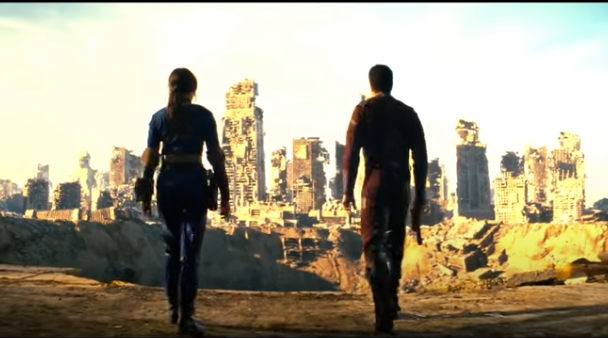Introduction
In the vast, irradiated expanse of Appalachia, Fallout 76 presents a unique challenge: rebuilding civilization from the ashes of a nuclear war. Set just 25 years after the Great War, this game is not only a survival adventure but also a reflection on the resilience of humanity in the face of catastrophic destruction. Players take on the roles of Vault 76 dwellers, venturing into a world where the remnants of society are struggling to survive amidst mutants, raiders, and other dangers.
The Setting: Appalachia
Fallout 76 is set in West Virginia, a region known for its natural beauty and industrial heritage. The game's portrayal of a post-apocalyptic Appalachia serves as a stark reminder of the real-world environmental and economic challenges faced by the region. The game's world is four times larger than previous Fallout titles, offering an expansive environment for exploration and discovery.
The Quest for Civilization
The game's narrative centers around the Overseer of Vault 76, who leaves behind a trail of recordings guiding players through the ruins of West Virginia. This journey is both a personal exploration of the Overseer's past and a broader quest to restore civilization. Players must navigate the political and social remnants of pre-war society, including remnants of elections and governance systems, as seen in the town of Helvetia.
Challenges and Opportunities
Rebuilding civilization in Fallout 76 involves overcoming numerous challenges:
-
Environmental Hazards: The Appalachian wasteland is filled with mutated creatures, toxic waste, and other dangers that threaten survival.
-
Social Rebuilding: Players must interact with other survivors, forming alliances and resolving conflicts to create stable communities.
-
Economic Systems: The game introduces a trading system and crafting mechanics, allowing players to manage resources and build infrastructure.
Despite these challenges, Fallout 76 offers opportunities for creative expression and community building. Players can form groups, share resources, and collaborate on large-scale projects, fostering a sense of community in the face of adversity.
As players adventure through the ruins of Appalachia, acquiring and managing Fallout 76 items becomes crucial for survival. The variety of these items, ranging from powerful firearms to rare crafting materials, allows players to adapt to the ever-changing environment and face the challenges posed by the wasteland's inhabitants. By scavenging for these items and utilizing them strategically, players can enhance their capabilities, fortify their settlements, and contribute to rebuilding the fractured communities of Appalachia. This process of item management also reflects the broader theme of resourcefulness and resilience that defines the game's narrative.
Themes and Reflections
The game touches on several themes relevant to contemporary society:
-
Capitalism and Consumerism: The game's monetization model and in-game economy have sparked discussions about the impact of capitalism on gaming experiences.
-
Environmentalism: The post-apocalyptic landscape serves as a cautionary tale about the consequences of environmental neglect and exploitation.
-
Community and Resilience: The game highlights the importance of cooperation and mutual support in rebuilding society.
Conclusion
Fallout 76 is more than just a survival game; it is an exploration of what it means to rebuild and preserve civilization in the face of catastrophic failure. By navigating the ruins of Appalachia, players are not only fighting to survive but also contributing to a broader narrative about resilience, community, and the human spirit. Whether through solo exploration or collaborative efforts, Fallout 76 offers a compelling journey into the heart of a post-apocalyptic world, challenging players to imagine and create a better future.


